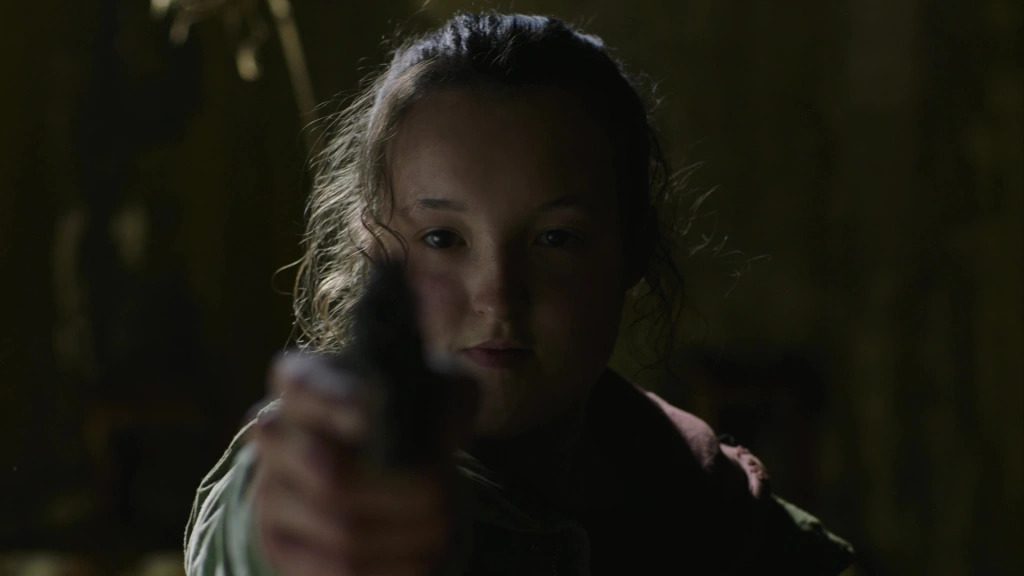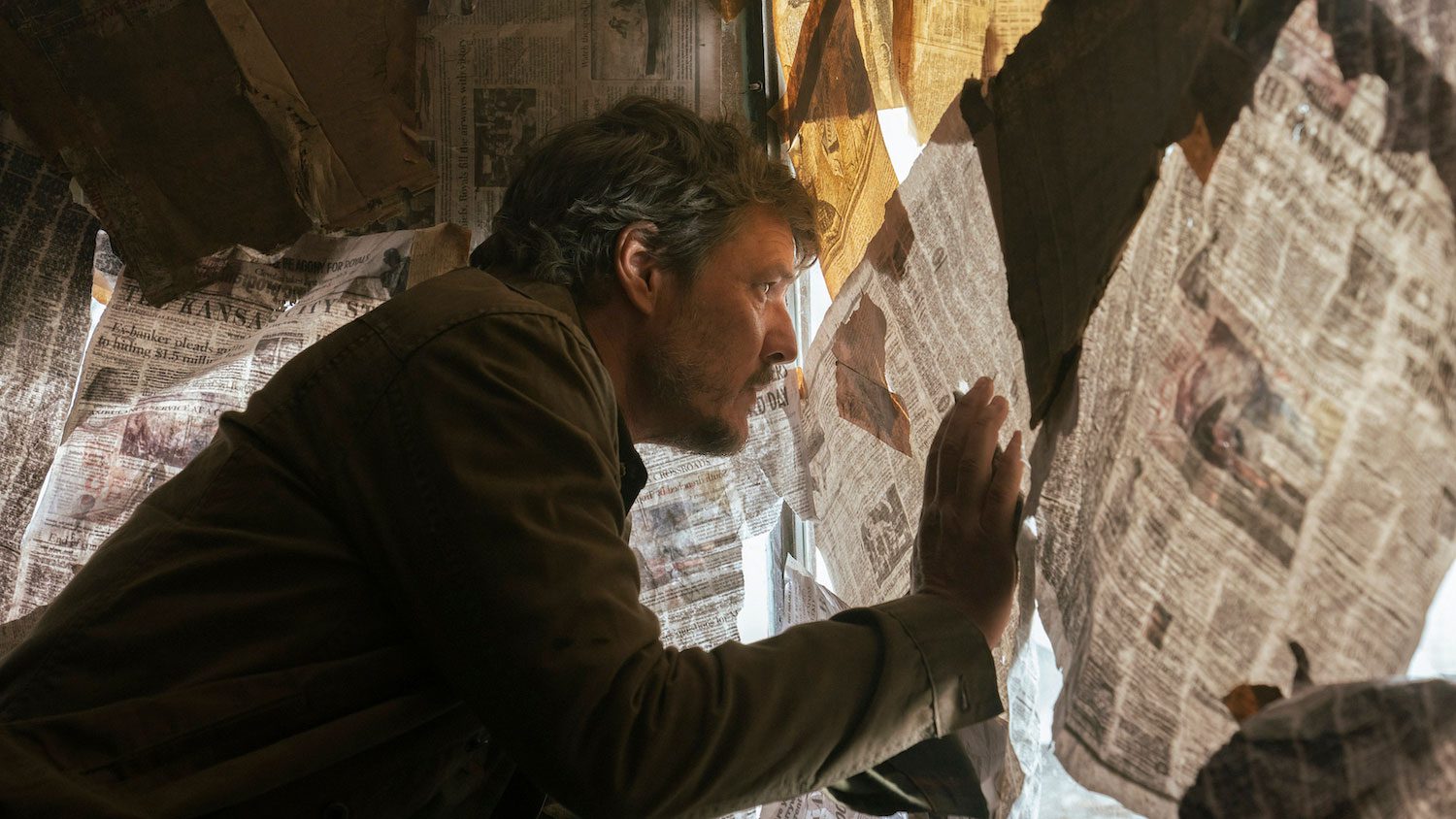REVIEW: The Last of Us – Season 1, Episode 4, “Please Hold to My Hand”
A miracle has occurred; HBO’s The Last of Us has significantly improved its quality with this week’s episode 4, “Please Hold to My Hand.” That ridiculous title that seems to refer to nothing aside, “Please Hold to My Hand” seems to have achieved the impossible by finally developing its characters, providing decent action, and trimming the gargantuan bloat that has exemplified this series to date. “Please Hold to My Hand” can still not be called good, but the show can finally be called OK for the first time. Many issues still plague “Please Hold to My Hand,” from nitpicks to full-on problems. However, the ratio of good to bad leans far more towards positive than in any previous episode. Bloat is still very much an issue, even with the shortest runtime in the season to date. Once again, the actors were seemingly told to take as long as possible to say or do anything. If “Please Hold to My Hand” had been roughly 15 minutes long and focused solely on the Joel and Ellie portion of the story, this episode could have been good.
One of the best things about “Please Hold to My Hand” is its extremely close adherence to the source material. For the first time, this show accurately adapts the video game and, more importantly, the characters from the video game. The majority of the changes are mere expansions upon the source material without contradiction or replacement. That is the best kind of adaptation, where things are only added, not subtracted or replaced. The additions in this episode vary from reasonable to horrific, with the worst coming entirely from the villains. The resistance hunters were faceless in the game, but they have been given a leader in “Please Hold to My Hand.” If the leader had been well-written and acted, this expansion would have been worthwhile. However, this leader lacks anything to make her a believable, intimidating, or 3-dimensional antagonist. On the other hand, some changes that were made in interactions between Joel and Ellie are for the better. There is, ultimately, a lot of good in this episode, and a lot to like.
**Spoilers**
“Please Hold to My Hand” follows Joel and Ellie traveling cross-country on their journey to Tommy in hopes of finding the Fireflies’ laboratory. Along the way, they’re waylaid by hunters in Kansas City and forced into a game of cat and mouse through the ruins of the city. Based on that brief description, this episode is 100% accurate to what occurred during this portion of the video game. The main change that contradicts the source material is the relocation from Pittsburgh to Kansas City. While this is an odd decision that doesn’t seem to service anything, neither does it detract from the story. Yes, they changed the source material. No, it’s not a big deal, as it doesn’t affect anything substantial.
The opening of the episode is very rough, starting with a long, drawn-out sequence of Ellie stroking her gun for far longer than is necessary, making it one of the most egregious examples of bloat. Once the sequence ends, there are a few interactions between Joel and Ellie that are emotionless and lacked depth. Even when lines are lifted directly out of the game, such as Ellie’s discovery of Bill’s magazine, Bella Ramsey’s poor performance ruins a potentially good scene. She is still one of the worst aspects of the show. Inversely, for the first time, Pedro Pascal isn’t only marginally better; he’s significantly better. He finally gets over his robotic performance and acts, embodying Joel in a few brief moments.
After that initial series of bloated and cheesy scenes, Joel and Ellie put in a cassette tape and simply listen to the music while a montage of destroyed scenery whizzes past them on their road West. As stated in the episode 1 review, this show is almost OK when the characters aren’t speaking. That is very much true for “Please Hold to My Hand” as well, specifically because the dialogue is extremely weak when not lifted directly from the game.

The issues of “Please Hold to My Hand” are still numerous and damaging, with bloat, poor acting, and poor dialogue at the top of its list. However, many of the problems are nitpicks. For example, a strange hole in the wall perfectly sized for Ellie to fit through at the beginning of the initial flight sequence is odd, coincidental, and distracting, but it’s just a nitpick. Additionally, Joel’s use of a glass sound trap as Joel and Ellie prepare to sleep is poorly executed. Tactically, the glass should have been deployed outside the door of their room rather than right around their sleeping bags. By the time someone steps on that glass, it is far too late, as any enemies will already be within arm’s reach of Joel by that point. Still a nitpick, but worth noting.
Other than that, a significant change from the source material that leads into the next episode and will need to be justified thoroughly is the change to Henry’s character. Suddenly, he is the ultimate villain for the hunters of Kansas City rather than just another survivor. In the game, the coincidental meeting of Joel and Ellie with Sam and Henry is justified by the fact that they’re just regular people who aren’t important whatsoever. In “Please Hold to My Hand,” the entire city is searching for Joel, Ellie, Sam, and Henry, and they all pick the exact same building and climb the exact same number of floors to hide. That is a narrative-breaking coincidence that will doubtfully be explained sufficiently in the next episode.
The leader of the hunters is, without a doubt, the worst part of this episode. From her mousy voice, lack of confidence, and constant asking of emotion-filled questions, it’s clear that she possesses none of the basic attributes of leadership. There is no logical reason for any of these people to be following her in her vendetta against Henry. Every moment that she’s on-screen damages this episode. She is poorly characterized, poorly acted, and flushed with incompetence. The writers’ desire to humanize the hunters backfired with this character.

The best part of “Please Hold to My Hand” comes at the beginning of the episode, starting with that musical montage of their travel and ending with an execution. Once Joel and Ellie arrive in Kansas City, the freeway is blocked sufficiently to prevent them from proceeding, so they are forced to venture into the city to go around this new obstacle. Once in the city, they are ambushed by hunters, resulting in a decent fight sequence. Joel finally takes charge and orders Ellie around, ensuring her safety while dispatching the foes. It’s a well-done sequence with good action that contains a small change from the source material. The memorable moment of Ellie saving Joel’s life by killing a man is moved from inside a hotel to this fight sequence. Narratively, it accomplishes the same thing, so this isn’t a bad change.
This change is expounded further by the hunter’s survival after Ellie’s initial shot. With the hunter surviving and begging Ellie for his life, the impact of her decision and violent act is far more visceral and apparent to this young girl. Ellie finally shows weakness and deference to Joel. In this moment, Ellie from the video games can be seen for the first time. Additionally, Joel orders Ellie into the other room as he executes the hunter himself, also showing Joel for the first time. Despite making several changes to the source material, combining scenes, and changing outcomes, this sequence is easily the best of the entire show thus far.

“Please Hold to My Hand” is the first episode of The Last of Us that feels like it has some talent behind it and a successful execution. Once again, the technical side of things, the CGI, the production design, and the costuming are top-tier and near-perfect, but finally, the writing and the acting attempt to follow suit. While far from perfect – or even good – this massive improvement upon its predecessors is to the credit of “Please Hold to My Hand.” It’s doubtful that this quality will continue in the future, as this episode also proves that the writers are capable of semi-talented execution but doggedly chose to avoid it in the three previous episodes. They chose to write episode 3’s horrific script rather than proceeding directly into episode 4. The writers are capable of writing a decent show, but they are choosing not to, which implies they will likely continue to choose not to, making this episode’s quality a fluke and a one-time occurrence.
The Last of Us – Season 1, Episode 4, “Please Hold to My Hand”
Plot - 4
Acting - 3
Progression - 6
Production Design - 8.5
Adaptation - 6
5.5
Lacking
“Please Hold to My Hand” is the first episode of The Last of Us that feels like it has some talent behind it and a successful execution. Once again, the technical side of things, the CGI, the production design, and the costuming are top-tier and near-perfect, but finally, the writing and the acting attempt to follow suit.







